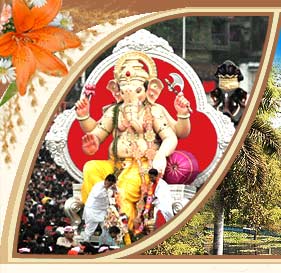


   |
Pune HistoryPune was initially built as an
agricultural settlement, by the name of Punnaka. The city dates back to
the 8th century and was under the rule of the Rashtrakutas. After
Rashtrakutas, the city came under the reign of the Mughals and the
Marathas, which came to end somewhere around the year 1818. The
mid-seventeenth saw Pune adopting the role of the temporary residence of
King Shivaji. In the following lines, we have provided more information
on the history of Puna, India. In 1749, the city was given the status of the capital of the Maratha kingdom, under the Peshwa rule. As per the origin & history of Pune, this time proved to be the golden era for the city as it experienced large-scale development during this period. A number of temples were also constructed under the Peshwa rule, contributing to the architectural beauty of Pune. Standing as a testimony to this time is the Shivneri Fort, where Shivaji was born and spent a major portion of his childhood. Pune history shows that the city played a major role in the independence struggle also. It served as the starting point of a number of social as well as religious reforms. Bal Gangadhar Tilak and Vinayak Damodar Savarkar started numerous movements from Pune. The city also played host to reformers like Mahadev Govind Ranade, R.G. Bhandarkar, Gopal Krishna Gokhale, Maharshi Vitthal Ramji Shinde and Mahatma Jyotirao Phule. After the country attained independence, efforts were made to develop Pune as an educational and research center. The first step in this regard was the establishment of the University of Pune, and the National Defence Academy (NDA) in the city. Today, Pune is home to some of the best schools, colleges as well as professional institutions of India. Infact, the city is known as the 'Oxford of the East'. The establishment of numerous software companies in the city has added to its attraction. |